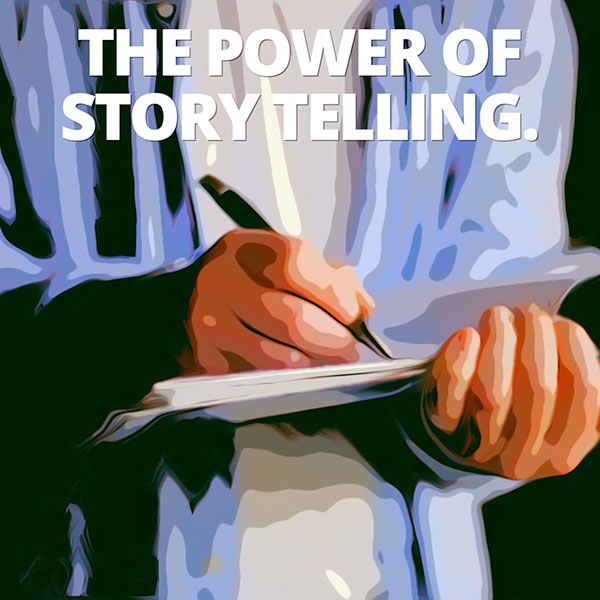 Storytelling is an ancient art form. From the earliest cave paintings to film — and today, the digital realm — we have always been drawn to stories. In today’s fast-paced and digitally-driven world, the art of storytelling is more important than ever – a powerful tool to cut through what is a noisy digital space.
Storytelling is an ancient art form. From the earliest cave paintings to film — and today, the digital realm — we have always been drawn to stories. In today’s fast-paced and digitally-driven world, the art of storytelling is more important than ever – a powerful tool to cut through what is a noisy digital space.
Developing Connection:
One of the most powerful aspects of storytelling is its ability to create connections. Regardless of cultural background, language, or location, stories have the power to resonate with us and our experiences. Shared stories create a sense of community, bridging gaps between potential and current clients and your business.
Influencing Decision Making:
Storytelling in marketing plays a crucial role in influencing consumer decision-making. The goal is to craft a compelling narrative that resonates with the target audience, creating an emotional connection with your business. Effective storytelling goes beyond facts or features of a product, instead focusing on evoking feelings. This emotional engagement can be key in motivating a positive decision as clients often make decisions based on how a product or service makes them feel.
Education:
Storytelling is a powerful tool in educating clients, mainly because it turns abstract or complex concepts into understandable and memorable concepts. When information is turned into a story, it becomes more engaging, making it easier for clients to understand and retain. By embedding these facts within a story, clients can better understand the relevance and usefulness of the information in real-world contexts. Furthermore, stories evoke emotions and can create a personal connection to the subject matter, which enhances learning. Additionally, storytelling can illustrate the success of a product or strategy through real-life examples, making the information not just informative but also relatable.
Being Memorable:
Storytelling is a powerful way to improve the retention and memorability of information. Human brains are wired to respond to stories; they engage us emotionally and intellectually, making the information they convey more memorable than isolated facts or figures. This is because stories often involve characters, emotions, conflicts, and resolutions, elements that our minds find easier to relate to and recall. When information is presented in a story format, it creates a “memory trace” in our brains, a path that is easier to navigate when you need to remember later.
Bottom line, stories help engage, connect, and help make you more memorable – which helps make you stand out among the many choices.
